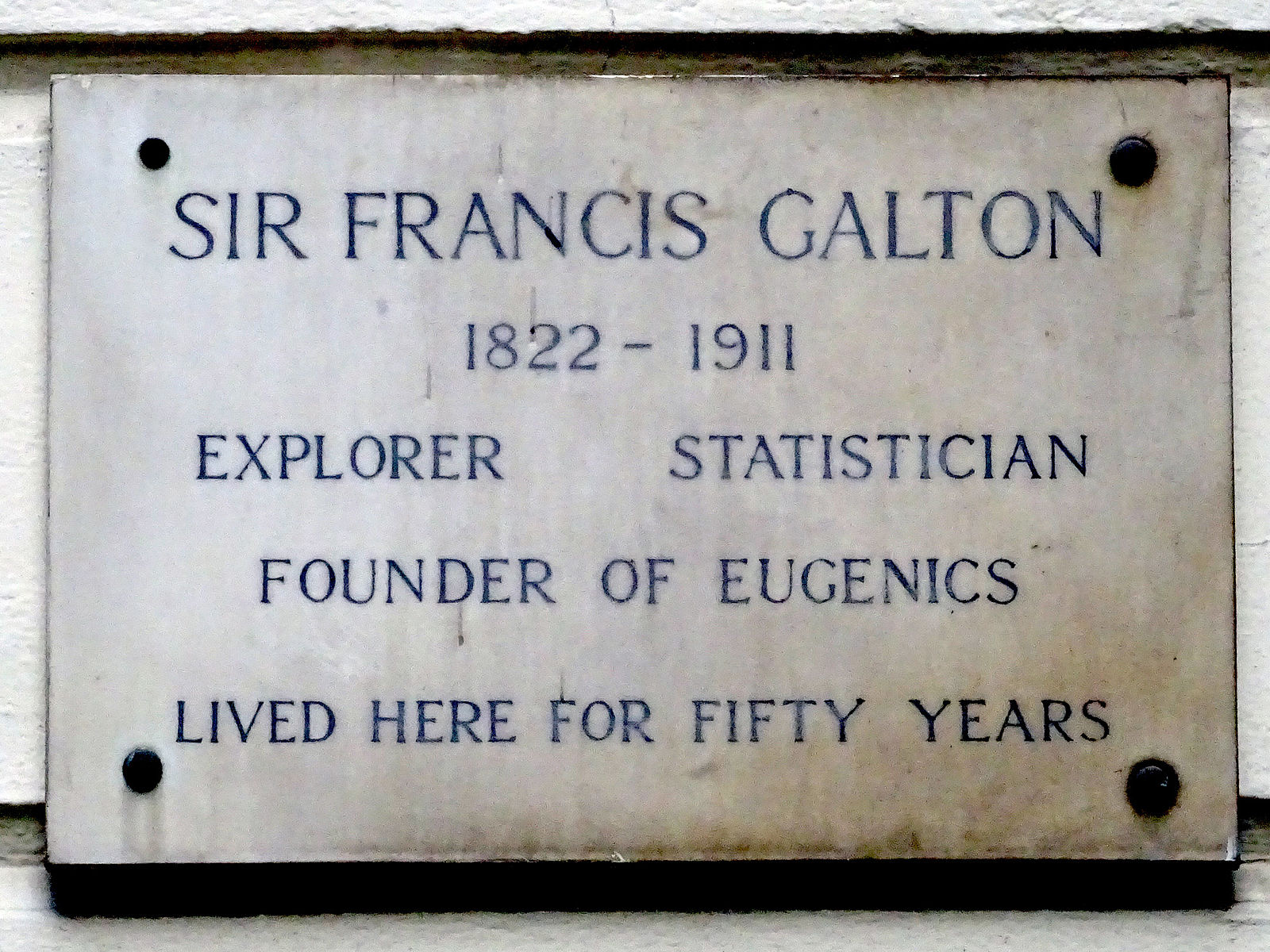The “Correlation” Between Statistics and Eugenics
By Aubrey Clayton,
Los Angeles Review of Books
| 07. 18. 2024
Image "Sir Francis Galton" by Spudgun67 from Wikimedia Commons licensed under CC BY-SA 4.0
IN 2013, A SERIES of ads about the dangers of teen pregnancy appeared on New York City subway trains. Sponsored by the city’s Human Resources Administration, the ads cautioned prospective teen parents that babies were likely—surprise!—to exact a heavy toll on their finances, relationships, and job prospects. The ads were formulated as plaintive messages from the babies themselves. One teary-eyed toddler lamented: “I’m twice as likely not to graduate high school because you had me as a teen.” As then-mayor Michael Bloomberg explained, “This campaign makes very clear to young people that there’s a lot at stake when it comes to deciding to raise a child.” The ad campaign was quite rightly ridiculed, in large part because it offered no support services for teens who were, or might become, pregnant.
From a statistical point of view, though, the most objectionable part of the whole campaign was a single word—“because.”
At the bottom of the poster, a footnote contained this statistic: “Kids of teen moms are...
Related Articles
By Josie Ensor, The Times | 12.09.2025
A fertility start-up that promises to screen embryos to give would-be parents their “best baby” has come under fire for a “misuse of science”.
Nucleus Genomics describes its mission as “IVF for genetic optimisation”, offering advanced embryo testing that allows...
By Tina Stevens, CounterPunch | 12.11.2025
Silicon Valley and other high tech billionaires are investing millions in start-ups dedicated to creating genetically engineered (GE) babies, according to a recent Wall Street Journal (WSJ) report. AI mogul Sam Altman, cryptocurrency entrepreneur Brian Armstrong, venture capitalist Peter...
By Jonathan Matthews, GMWatch | 12.11.2025
In our first article in this series, we investigated the dark PR tactics that have accompanied Colossal Bioscience’s de-extinction disinformation campaign, in which transgenic cloned grey wolves have been showcased to the world as resurrected dire wolves – a...
By Hannah Devlin, The Guardian | 12.06.2025
Couples undergoing IVF in the UK are exploiting an apparent legal loophole to rank their embryos based on genetic predictions of IQ, height and health, the Guardian has learned.
The controversial screening technique, which scores embryos based on their DNA...




